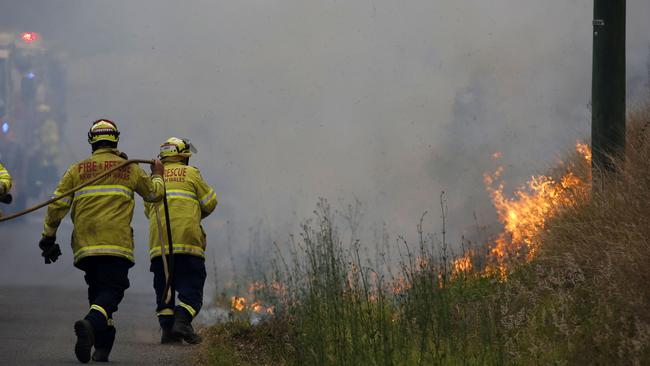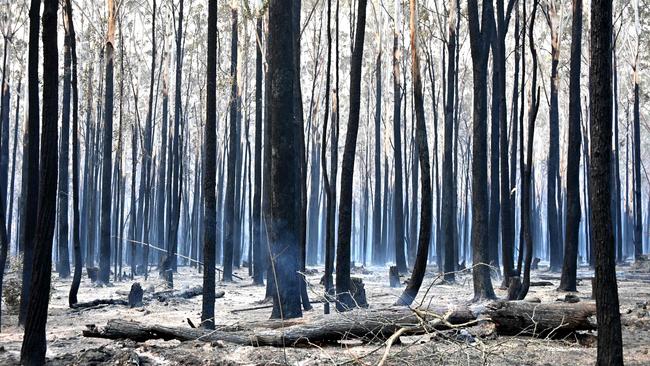
The immediate response must be to deal with the consequences of these events and to provide assistance. It is a time for sober assessments of the reasons for these events and to question whether they are linked to climate change. As the climate change activists would urge, we need to look to the science to inform us about possible links.
READ MORE: LIVE — Follow the latest on the bushfire threat | Inquirer — Drought-ravaged profits | Bandt wants Port Arthur-like response | Greens playing with fire: Coalition, Labor | Even hippies of Nimbin blame greenies
Consider first the issue of drought. In 2013, the Intergovernmental Panel on Climate Change placed low confidence in “a global-scale observed trend in drought”. Five years later, the IPCC had become more confident of a link between climate change and drought — although the confidence level was still medium — but noted this relationship was confined to certain parts of the globe.
They included Europe, parts of Africa and parts of Asia, but not Australia. Professor Andy Pitman of the University of NSW has noted that there is no clear link between climate change and droughts. As far as Australia is concerned, he observes that “there’s no trend in the data … there is no drying trend … no trend in the last hundred years”.
When it comes to bushfires, the IPCC places medium confidence of climate change increasing their risk but notes that this appears to be confined to certain places — Canada, the US and the Mediterranean. It is noted that there is very little information on Australia.
Of course, the incidence of and the damage caused by bushfires are the result of a number of factors, including how the fires are started, the extent of the underlying fuel and the weather patterns at the time. Property damage is closely related to the pattern of settlement in the affected areas.

In California, for instance, where there have been recent damaging bushfires, the refusal of authorities to undertake preventive burn-offs has contributed to the severity of the fires as well as the size of the areas affected.
Allowing properties to be constructed in fire-prone areas has likewise led to greater property damage and potentially loss of life.
It is completely understandable that people would wish for measures to be implemented that might end the drought, prevent new ones and reduce the incidence of bushfires. But to claim that Australia doing more to reduce carbon dioxide emissions would have any impact is completely fanciful.
With China now the largest emitter of carbon dioxide and its recent annual additions to emissions larger than our total emissions, the time has come for Australia to work on climate adaptation and bushfire prevention. We can still do our bit in reducing emissions but our efforts alone will do nothing to avert adverse events that may be linked to climate change.




Your heart goes out to the people in NSW and Queensland affected by the bushfires. In many instances, the very same people are also being weighed down by the damaging impact of a prolonged drought.